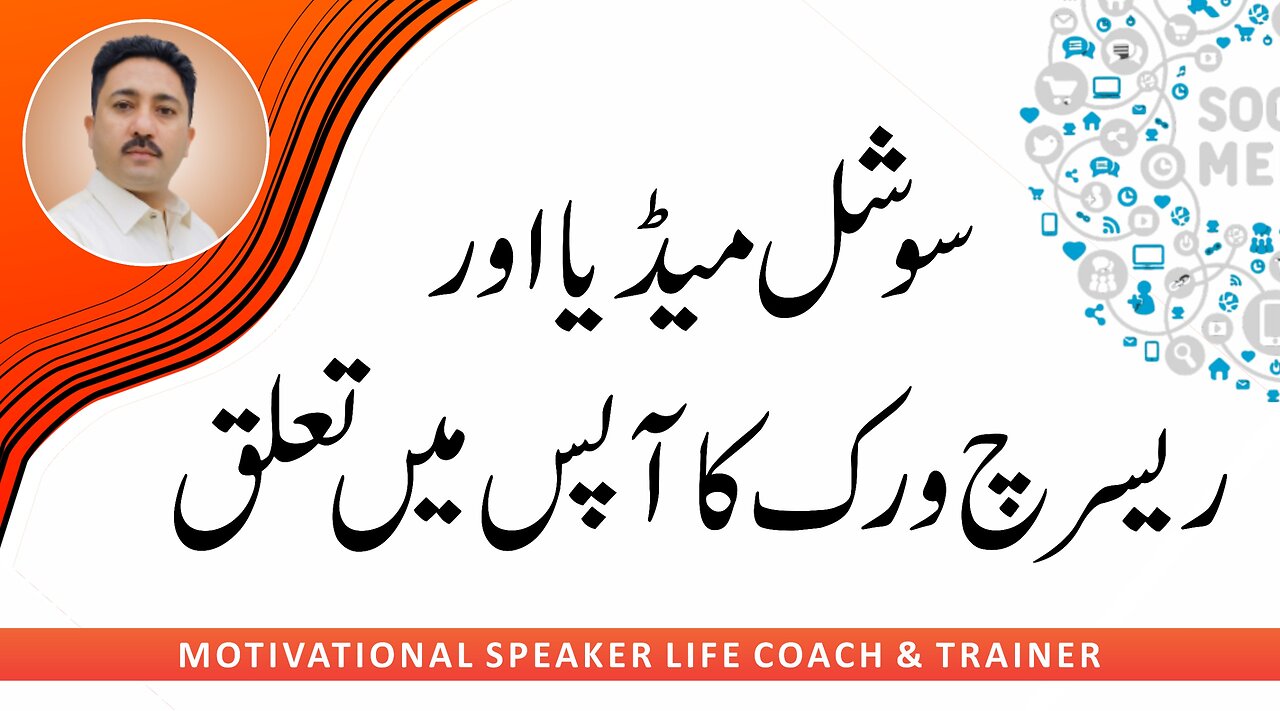Premium Only Content

Social Media and Research work
Social media and research work have a complex and multifaceted relationship. On one hand, social media can be a powerful tool for researchers, providing access to a vast amount of data, facilitating collaboration, and enabling the dissemination of research findings to a wider audience. On the other hand, the use of social media in research also raises concerns about privacy, ethics, and the potential for bias.
Here are some of the ways in which social media can be used in research work:
Data Collection
Social media listening: Researchers can use social media listening tools to monitor conversations on social media platforms and gather data on public opinion, trends, and emerging issues.
Surveys and questionnaires: Social media can be used to distribute surveys and questionnaires to a large and diverse audience, potentially reaching participants who would be difficult to reach through traditional methods.
Crowdsourcing: Researchers can leverage the collective intelligence of social media users to gather data, analyze information, and solve problems.
Collaboration
Online communities: Social media platforms can be used to create online communities where researchers can connect with colleagues, share ideas, and collaborate on projects.
Project management tools: Social media tools can be used to manage research projects, track progress, and share information with team members.
Dissemination of Research
Blogs and websites: Researchers can use social media to create blogs and websites to share their research findings with a wider audience.
Social media platforms: Researchers can use social media platforms to share their research findings with their followers and engage in discussions with other researchers and the public.
Ethical Considerations
Privacy: Researchers must be mindful of privacy concerns when collecting and analyzing data from social media platforms. They should obtain informed consent from participants and take steps to protect their privacy.
Bias: Researchers should be aware of the potential for bias in social media data and take steps to mitigate it.
Misinformation: Researchers should be careful to avoid spreading misinformation on social media and to critically evaluate the information they encounter.
Overall, social media can be a valuable tool for research work, but it is important to use it responsibly and ethically. By understanding the potential benefits and risks of social media, researchers can harness its power to advance knowledge and improve society.
-
 2:29:56
2:29:56
Laura Loomer
11 hours agoEP100: MAGA Goes Scorched Earth On USAID
69.6K51 -
 51:45
51:45
Talk Nerdy 2 Us
12 hours ago🔥 Talk Nerdy 2 Us – Feb 7th: HACKED, TRACKED & UNDER ATTACK! 🔥
84.7K7 -
 58:33
58:33
Man in America
19 hours agoFluoride & the Sinister Plot to Poison Us From Birth w/ Larry Oberheu
73.3K24 -
 3:41:30
3:41:30
I_Came_With_Fire_Podcast
19 hours ago🔥USAID SCANDAL | MA-GAZA | Cartel VIOLENCE Ramps Up🔥
72.4K10 -
 7:57:34
7:57:34
SpartakusLIVE
13 hours agoShadow BANNED, but we PARTY ON || Friday Night HYPE
74.2K2 -
 2:00:53
2:00:53
Omar Elattar
12 hours agoGRANT CARDONE: “Will I Run for Governor?” | Trump EXPOSED | Bitcoin | $500 Billion Crisis!
50.9K14 -
 46:48
46:48
Glenn Greenwald
15 hours agoGlenn Takes Your Questions On Gaza, USAID, and More | SYSTEM UPDATE #403
88.9K78 -
 56:42
56:42
Candace Show Podcast
18 hours agoBecoming Brigitte: One Coincidence Too Many | Ep 3
174K206 -
 3:14:38
3:14:38
Nerdrotic
19 hours ago $19.24 earnedDisney Plus's Complete FAILURE! Fantastic Four Trailer, MCU Phase 5 Reveal | Friday Night Tights 340
154K46 -
 1:00:58
1:00:58
The StoneZONE with Roger Stone
14 hours agoWill RINOs Sink Robert F. Kennedy Jr.'s Confirmation? | The StoneZONE w/ Roger Stone
44K8